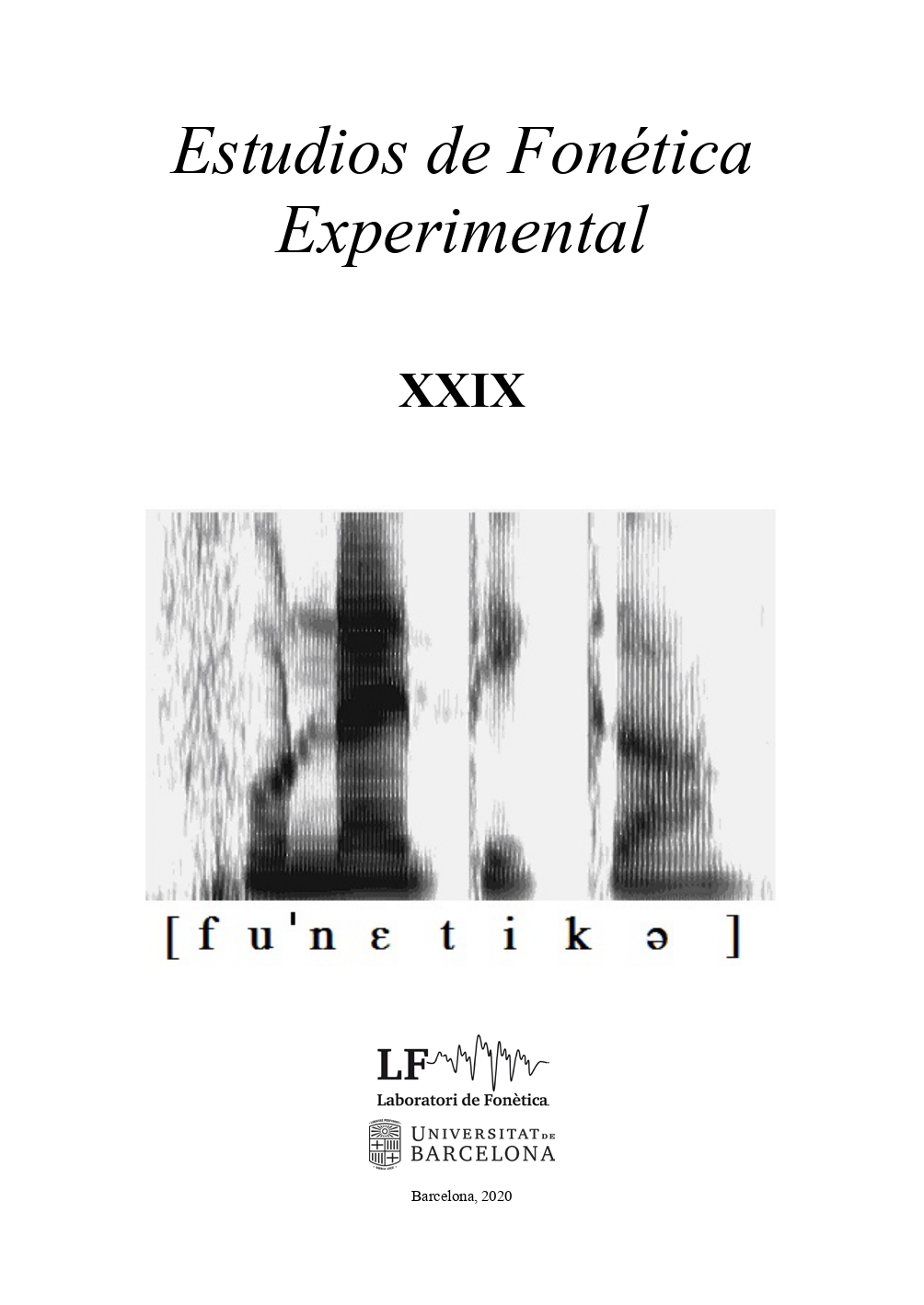TRAFO: a multidialectal phonological transcriber for Spanish
Keywords:
phonological transcription, Spanish, dialectal variation, speech technology, Grapheme-to-Phoneme (G2P)Abstract
This paper presents TraFo, an automatic phonological transcriber of dialectal varieties of Spanish. While there exists a wide range of tools for automatic phonetic transcription of several languages (including Spanish), only very few tackle the issue of automatic transcription on the phonemic level, especially when it comes to considering dialectal phonological variation. TraFo is an online tool that generates grapheme-to-phoneme transcriptions of Spanish including dialectal features as “yeísmo” (i.e /ʎ/ ~ /ʝ/ merger into /ʝ/), “zheísmo” (i.e. /ʎ/ ~ /ʝ/ merger into /ʒ/), “sheísmo” (i.e. /ʎ/ ~ /ʝ/ merger into /ʃ/), “lleísmo” (i.e. absence of merger i.e. /ʎ/ ~ /ʝ/), “seseo” (i.e. /s/ ~ /θ/ merger into /s/), “ceceo” (i.e. /s/ ~ /θ/ merger into /θ/), and “distinguidor” (i.e. absence of /s/ ~ /θ/ merger). This set of parameters is sufficient to allow for the automatic phonological transcription of a wide range of Spanish varieties and can hence be used for teaching, (self-)learning, research and speech therapy in most Spanish-speaking areas.
References
ARMARIO, J. (2003-2008): Silabeador y Transcriptor Fonético y Fonológico, http://www.respublicae.net/lengua/silabas/index.php, [25/07/2019].
BAYTUKALOV, T. (2013-2019): EasyPronunciation, https://easypronunciation.com/es/spanish-phonetic-transcription-converter, [25/07/2019].
COLOMA, G. (2018): «Argentine Spanish», Journal of the International Phonetic Association, 48(2), pp. 243-250.
GARRIDO, J. M., M. CODINA y K. FODGE (2018): «TransDic, a public domain tool for the generation of phonetic dictionaries in standard and dialectal Spanish and Catalan», en IberSPEECH 2018, pp. 291-295. ISCA. doi:10.21437/IberSPEECH.2018-61. http://www.isca-speech.org/archive/IberSPEECH_2018/abstracts/IberS18_O5- 3_Garrido.html, [19/07/2019].
INTERNATIONAL PHONETIC ASSOCIATION (ed.) (1999): Handbook of the International Phonetic Association: A guide to the use of the International Phonetic Alphabet, Cambridge, Cambridge University Press.
MARTÍNEZ-CELDRÁN, E., A. M. FERNÁNDEZ-PLANAS y J. CARRERA-SABATÉ (2003): «Castilian Spanish», Journal of the International Phonetic Association, 33(2), pp. 255-259.
MOLINO DE IDEAS (2012): Transcriptor Fonético, http://www.fonemolabs.com/transcriptor.html, [25/07/2019].
MORRAS, X. L. (2005): Transcriptor Fonético Automático del Español, http://www.aucel.com/pln/transbase.html, [25/07/2019].
NAVARRO TOMÁS, T. (1966): «El alfabeto fonético de la Revista de Filología Española», Anuario de Letras, 6, pp. 5-19.
TALP-UPC (2017): SAGA – Phonetic transcription software for all Spanish variants, https://github.com/TALP-UPC/saga, [25/07/2019].
Downloads
Published
How to Cite
Issue
Section
License

This work is licensed under a Creative Commons Attribution-NonCommercial-NoDerivatives 4.0 International License.
All articles published online by Estudios de Fonética Experimental are licensed under Creative Commons Attribution-NonCommercial-NoDerivs 4.0 International (CC BY-NC-ND 4.0 DEED), unless otherwise noted. Estudios de Fonética Experimental is an open access journal. Estudios de Fonética Experimental is hosted by RCUB (Revistes Científiques de la Universitat de Barcelona), powered by Open Journal Systems (OJS) software. The copyright is not transferred to the journal: authors hold the copyright and publishing rights without restrictions. The author is free to use and distribute pre and post-prints versions of his/her article. However, preprint versions are regarded as a work-in-progress version used as internal communication with the authors, and we prefer to share postprint versions.




